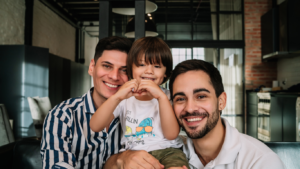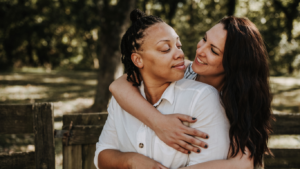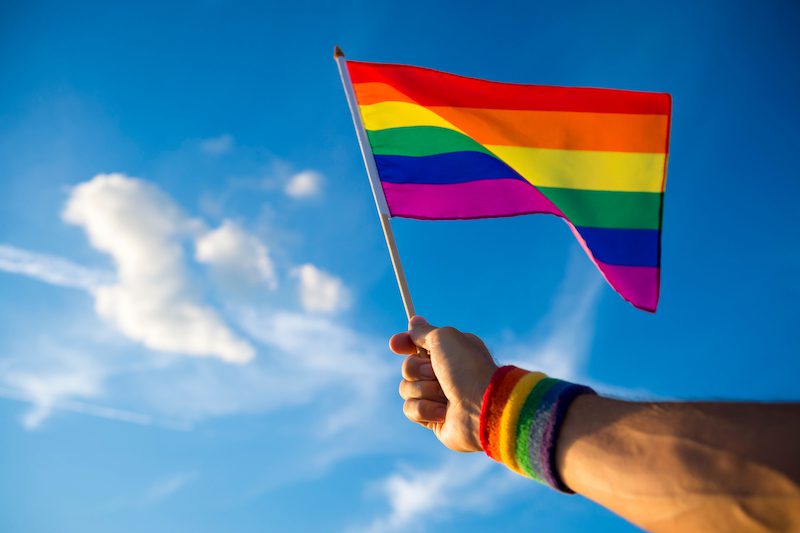
Breaking Binary
Understanding Pansexual, Gender Roles, Gender Binarism, Gender Fluid
Breaking Binary
Thinking about gender in terms other than “male” and “female” does not come naturally to many of us. Our instinct, when we think of gender at all, is to default to the mainstream view of two—and only two–genders. Given our society and collective experience, this is not surprising. From the day we are born, it is printed on our birth certificate. It is reinforced by bathroom doors, and the M or F bubbles on our standardized tests in school. But it is much more than that. As you read this article, keep an open mind and forget what you have been conditioned to think as we break down the Gender Binary.
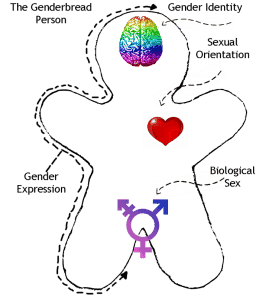
Before I begin to dissect Gender Binarism, I want to explain the image that has come to be known as “The Genderbread Person.” Remember when you were in first or second grade and learning how to read? Didn’t the pictures just make it that much easier? Well, following that logic, the Genderbread Person is here to make this discussion that much easier. As you can see, there are four different characteristics
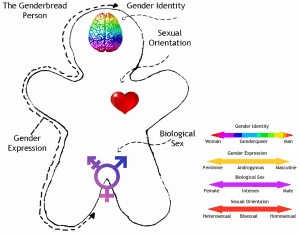
To make this next statement clear, I have put each of these on its own continuum. Okay, are you ready?… Each of these characteristics is independent of the others. Just because you may fall all the way to the right on one scale, it does not mean that you are all the way to the right on all four. Keep this in mind as we dissect each of the four categories
(note: a common term now is pansexual – a pansexual person is not limited in sexual choice with regard to gender, biological sex, or gender identity.)
Gender Identity: A Personal Conception of Oneself

Gender Identity refers to who you think you are in your mind. This spectrum ranges from “woman” on the left to “man” on the right, and anyone who falls in between is classified as “genderqueer.” Genderqueer refers to those do not fall under conventional “male or “female” gender distinctions, but instead can relate to both (bigender), neither (agender), or any other combination (third-gender,etc.) that can fall in the middle of the spectrum.
Gender Identity comes 100% from your very own mind. If you want to figure out your gender identity, try asking yourself the following questions:
- Do you think you fit better in society in a male role, a female role, both, or neither?
- Do you find yourself falling in the middle of the continuum, or do you think you fall completely outside of the spectrum to the left or right?
Your answer to these questions indicate your gender identity.
Gender Expression: How You Show The World Who You Are

Gender Expression refers to the way we manifest gender. This spectrum ranges from “feminine” on the far left to “masculine” on the right, and anyone who falls in between is classified as “androgynous,” or a combination of partially male and female in appearance. Gender expression reflects how you show your gender through your appearance, actions, behavior, etc. and how others interpret your expression based on traditional gender roles. Now,this can be a tricky concept, because you can actually find yourself shifting on the scale daily. You may wake up in a baggy shirt and shorts (masculine), but then shower and put on make-up and a dress (feminine). The reality,contrary to traditional belief, is that many of us fall somewhere in the androgynous section of the spectrum.
Biological Sex: Your Anatomy

Biological Sex refers to what your body possesses, both internally and externally, including your organs, hormones, and even chromosomes. This spectrum ranges from “female” on the far left to “male” on the right, and anyone who falls between is considered “intersex,” defined as someone who has sexual organs, hormones, or chromosomes of both. When it comes to biology, there is a pretty clearly defined line of what is male and what is female.
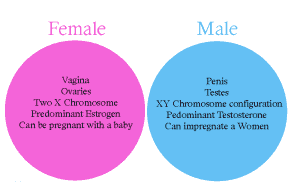
Other than surgical alterations, some people can be born intersex. For example, a person can be born with male external sexual organs, but internally have a functioning female reproductive system. The Intersex Society of North America (http://www.isna.org/faq/frequency) reports that 1 in 100 people are born with bodies that differ from the standard male or female.
Sexual Orientation: Your Sexual Identity in Relation To Whom You Are Attracted
Sexual Orientation refers to who you are attracted to on emotional, physical, and spiritual levels. This spectrum ranges from “heterosexual” on the far left to “homosexual” on the far right, and anyone who falls between is classified as “bisexual,” or attracted to individuals who are either male or female. If you are a man ONLY attracted to women or a women ONLY attracted to men, you are heterosexual and fall on the far left. If you are a man who is attracted to men (gay), or a woman who is attracted to women (lesbian), you are homosexual and fall to the far right. If you are attracted to both men and women, no matter your own gender, you are considered bisexual and fall somewhere in the middle.
Instead of approaching this with the question “Do you like women or men?” try to think deeply about your fantasies, dreams, thoughts, emotional connections to others, and sexual contact. Now choose a number from the chart below:
“0 – Exclusively Heterosexual
1 – Predominantly heterosexual, incidentally homosexual
2 – Predominantly heterosexual, but more than incidentally homosexual
3 – Equally heterosexual and homosexual
4 – Predominantly homosexual, but more than incidentally heterosexual
5 – Predominantly homosexual, incidentally heterosexual
6 – Exclusively Homosexual”
Based on this method, Dr. Alfred Kinsey brought to light that most people who think they are “straight” (heterosexual) actually fall between 1-3, while most people who think they are lesbian/gay (homosexual) fall between 3-5… Where do you fall?
Stitching It Back Up
Now that we have dissected each individual category, I want to return to what I said in the beginning. Although there may be certain overlaps, these four sections are NOT intrinsically interconnected. Your Gender Identity does not determine your Biological Sex, your Sexual Orientation does not determine your Gender Expression, your Biological Sex does not determine Sexual Orientation… no matter what category you compare with another, they do not determine each other- but they certainly can relate.
I will leave you with this last example and statement. If a person is born with a female Biological Sex, and is raised as a female, and identifies as a female, and expresses herself as a female, this person is classified as “cisgender,” meaning that the person’s self-identity conforms with the gender that corresponds with their biological sex. But, on the other hand, there are so many people for whom this is not the case, and I hope that reading this helped you to understand yourself, or your friend, or your loved one, or your classmate, or your parent, or your child, or anyone who may zig-zag through these spectra, because no matter how you put it together, while we all may be different, none of us are wrong.




